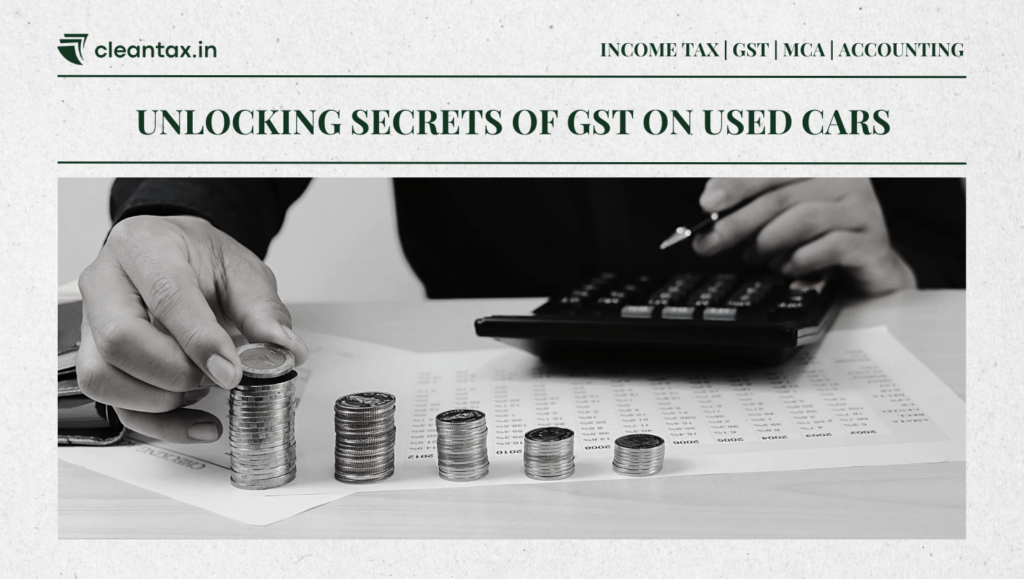Introduction
The Indian automobile market has witnessed a paradigm shift in GST on Used Cars. Rising prices of new cars, coupled with long waiting periods, have steered many buyers toward the second-hand car market. While this trend grows, a crucial element, the GST on used cars, often goes unnoticed.
The applicability of Goods and Services Tax (GST) on second-hand car transactions.
Most buyers, and even some sellers, are unaware that used car sales can attract GST, depending on specific conditions. This article breaks down everything you need to know about GST provisions on the sale of used cars, ensuring clarity for both tax professionals and the general public. Let’s dive in to understand how GST affects the thriving second-hand vehicle market in India.
Understanding GST on Used Cars
In GST terminology, the concept of "supply of goods" is broad. It includes the sale, transfer, exchange, lease, rental, licensing, or disposal of goods related to GST on Used Cars. Essentially, any transaction involving the transfer of ownership of a car is considered a supply of goods and is, therefore, taxable under GST.
For GST on used cars, this condition applies equally, whether the vehicle is sold by a business or an individual. However, the GST applicability depends largely on the registration status of the seller and buyer, and whether the transaction is commercial or private.
Sale of Used Cars: GST on Used Cars Rules Explained
The applicability of GST on used car sales depends on whether the seller is registered under GST and the nature of the transaction.
1. Sale by an Unregistered Seller
If an individual or entity that is not registered under GST sells a used car, the transaction typically falls outside the purview of GST. This means no GST on used cars is applicable in such cases.
For example:
- If an individual sells their personal car to another individual, GST does not apply.
2. Sale by a Registered Seller
For GST-registered sellers, the rules differ. If the seller is a registered car dealer or business engaged in buying and selling vehicles, the sale is considered a taxable supply of goods. In such cases, GST must be charged on the transaction.
For example:
- If a GST-registered dealer sells a used car, they are liable to pay GST on the sale amount or profit margin, depending on the applicable provisions.
Key Factors Affecting GST on used cars Applicability
Several factors determine whether GST is applicable to the sale of used cars. Let’s look at them:
| Scenario | Seller Registered? | Buyer Registered? | GST Applicable? |
| Individual-to-Individual Sale | No | No | No |
| Individual Selling to a Business | No | Yes | Yes (RCM) |
| Business Selling to an Individual | Yes | No | Yes |
| Business-to-Business Sale | Yes | Yes | Yes |
From the table, it is evident that GST is applicable primarily when the seller is GST-registered. If the seller is unregistered, no GST is levied unless the buyer is registered and liable under the Reverse Charge Mechanism (RCM).
GST Rule 32(5): The Margin Scheme for GST on Used Cars
GST Rule 32(5) introduces a provision for second-hand goods, including cars, to simplify taxation. Here’s how it works:
- If the car is sold in its original condition or with minimal processing that doesn’t alter its nature, GST is charged only on the profit margin.
- If the seller did not claim Input Tax Credit (ITC) while purchasing the car, GST is applied only to the margin.
- If the margin (selling price minus purchase price) is negative, GST is not applicable.
For instance:
- Purchase Price: ₹5,00,000
- Selling Price: ₹6,00,000
- Profit Margin: ₹1,00,000
- GST will be calculated only on ₹1,00,000.
Notification 8/2018: Rates for GST on Used Cars
Rates for GST on used cars vary based on the vehicle type and specifications, as outlined in Notification 8/2018.
GST Rates Based on Vehicle Type
- Petrol/CNG Vehicles (above 1200cc engine capacity and 4000mm length): 9%
- Diesel Vehicles (above 1500cc engine capacity and 4000mm length): 9%
- SUVs: 9%
- Other Vehicles: 6%
GST Adjustments for Depreciation
When a seller has claimed depreciation on the vehicle under the Income Tax Act, 1961, GST is calculated based on the difference between the selling price and the depreciated value.
For example:
- Purchase Price: ₹15,00,000
- Depreciated Value: ₹12,00,000
- Selling Price: ₹10,00,000
- Margin: (-₹2,00,000)
In this case, since the margin is negative, no GST is applicable.
Reverse Charge Mechanism (RCM)
RCM applies when a GST-unregistered seller sells a car to a GST-registered buyer. Under this mechanism, the buyer is responsible for paying GST on the transaction.
For example:
- If an unregistered individual sells a car to a GST-registered business, the business must pay GST under RCM.
Recent Updates: Uniform GST Rate of 18%
In the GST Council meeting held on December 21, 2024, Finance Minister Nirmala Sitharaman proposed a uniform rate of 18% GST on used cars sold by GST-registered dealers. This change replaces the earlier variable rates, which ranged from 5% to 28%.
To clarify, GST is levied only on the profit margin, not the entire sale value. For instance:
- Purchase Price: ₹12,00,000
- Selling Price: ₹9,00,000
- Margin: (-₹3,00,000)
No GST will be payable in this case since the margin is negative.
What Does This Mean for Buyers and Sellers?
For Sellers
- GST applies only to GST-registered dealers or businesses.
- Unregistered sellers do not need to pay GST on used car sales.
For Buyers
- If you purchase from a GST-registered dealer, the GST will be included in the final price.
- Private transactions between individuals are not subject to GST.
A Brief History of GST on Used Cars
- Pre-2017: A hefty 28% + cess was applicable to GST on used cars.
- October 13, 2017: The rate was reduced to 18% for certain vehicles.
- January 24, 2018: Notification issued to revise the tax rate to 12%-18% based on vehicle type.
- December 21, 2024: A uniform 18% GST rate was introduced for all used cars sold by GST-registered dealers.
Detailed Example of GST on Used Car Sale
Let’s break down a practical example to clarify how GST on Used Cars applies under the Margin Scheme."
This integrates the keyword seamlessly without altering the sentence's structure.
Scenario:
Seller: A GST-registered used car dealership
Buyer: A GST-registered business that deals with fleet vehicles
Step-by-Step Breakdown:
- Purchase Details:
- The used car dealer purchases a used car for ₹5,00,000 from an individual who is not registered under GST.
- At the time of purchase, the dealer does not claim any Input Tax Credit (ITC) because the car is bought for resale.
- Selling Details:
- The dealer later sells the same used car for ₹6,50,000 to a GST-registered business.
- The sale price is higher than the purchase price, so there is a profit margin of ₹1,50,000.
How GST is Calculated:
- Under the Margin Scheme:
Since the seller has not claimed any ITC on the car purchase, GST will only apply to the profit margin (₹1,50,000) and not on the entire sale price. - GST Rate:
For used cars, the applicable GST rate could be 18%, as per the recent changes. - GST Calculation:
- Profit Margin = ₹6,50,000 (Selling Price) - ₹5,00,000 (Purchase Price) = ₹1,50,000
- GST on Profit Margin = ₹1,50,000 × 18% = ₹27,000
So, the GST payable by the dealer on this sale will be ₹27,000.
Summary of Transaction:
- Purchase Price: ₹5,00,000 (No GST applicable because the seller is not GST-registered)
- Selling Price: ₹6,50,000
- GST on Profit Margin (18% of ₹1,50,000): ₹27,000
- Total Amount Payable by Buyer: ₹6,50,000 (selling price) + ₹27,000 (GST) = ₹6,77,000
Important Points:
- If the margin had been negative (for example, if the dealer bought the car for ₹6,00,000 and sold it for ₹5,50,000), no GST would be applicable because GST is only levied on the profit margin.
- The GST-registered business (the buyer) will pay the GST of ₹27,000, and the dealer will remit this amount to the government.
This example demonstrates how the Margin Scheme works and clarifies how GST applies only to the profit made on the resale of the vehicle, rather than the entire sale price. This simplifies the tax process for used car dealers, ensuring that they are only taxed on the value they add to the car during the resale process.
Conclusion
Understanding provisions of GST on used cars is crucial for both buyers and sellers. Whether you’re a consumer, dealer, or tax professional, clarity on GST applicability ensures compliance with the law and avoids unnecessary complications.
Key takeaways:
- GST applies primarily to transactions involving GST-registered sellers.
- Private sales between individuals are GST-exempt.
- GST is calculated only on the profit margin, not the total sale value.
By adhering to these provisions and staying informed about the latest updates, individuals and businesses can navigate the second-hand car market with confidence. Share this blog to spread awareness and help others stay informed about GST on used cars!
For more information you can refer to:
- Everything about GST on Used Cars (IndiaFilings)
- GST on Selling Old Cars (livemint.com)
- Hiked GST on used cars explained (Times of India)
FAQs Related to GST on Used Cars
Do private sales attract GST?
No, private sales between unregistered individuals do not attract GST. These transactions are exempt from GST provisions.
What is the Reverse Charge Mechanism (RCM)?
The Reverse Charge Mechanism applies when a registered buyer purchases a car from an unregistered seller. In this case, the buyer is responsible for paying GST on the transaction.
Is GST applicable if the selling price is lower than the purchase price?
No, GST is only levied on the profit margin. If the selling price is lower than the purchase price (negative margin), GST is not applicable.
What are the GST rates for used cars?
The GST rates vary based on the type of vehicle:
- Other vehicles: 6%
A uniform 18% rate is applicable under recent changes for GST-registered dealers.
- Petrol/CNG cars (engine >1200cc and length >4000mm): 9%
- Diesel cars (engine >1500cc and length >4000mm): 9%
- SUVs: 9%
Does GST apply to electric vehicles (EVs)?
Yes, GST applies to electric vehicles sold by registered dealers under the same provisions as other vehicles.
What happens if depreciation is claimed on the car?
If depreciation is claimed under the Income Tax Act, GST is calculated on the difference between the selling price and the car's depreciated value.


